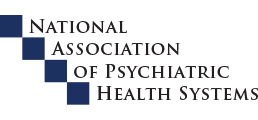Sierra Tucson offers effective, comprehensive treatment for individuals struggling with addiction and mental health concerns. Learn more about the signs and symptoms of Percocet addiction.
Understanding Percocet Addiction
Learn about Percocet addiction
Percocet is a strong prescription medication that contains oxycodone and acetaminophen. Oxycodone is an opioid that lessens pain and elicits feelings of euphoria and relaxation, while acetaminophen also decreases pain and reduces fever. Percocet is often prescribed to those who have been suffering from moderate to severe physical pain.
When an individual uses Percocet in the amount that has been prescribed and for the period of time that has been suggested by their physician, they might experience a handful of benefits with little risk. However, the pleasant effects of Percocet have caused many individuals to abuse this drug for self-medication, or in an effort to obtain a recreational high. Each of the ingredients in Percocet can cause damage to the individual if they abuse this substance. Acetaminophen can cause liver damage, while the presence of oxycodone can lead to cardiovascular difficulties and trigger an individual to become addicted to Percocet.
If someone who has been abusing Percocet, and has become addicted to it, does not obtain the appropriate professional care for this issue, they will experience a significant amount of trouble when attempting to end their Percocet addiction. Therefore, it is imperative for professional care to be obtained so that individuals can overcome their desire to abuse this medication and develop the skills necessary to empower them to live drug-free lives.
Statistics
Percocet addiction statistics
The fifth and most recent edition of the Diagnostic and Statistical Manual of Mental Disorders (DSM-5) reports that 0.37% of the American population of adults is impacted by opioid use disorder, the type of substance use disorder that includes Percocet addiction. According to the National Institute on Drug Abuse (NIDA), the annual number of opioid-related deaths in the United States have increased over 300% between 1990 and 2010. The Center for Disease Control and Prevention (CDC) states that the yearly prescription opioid overdose rate for Americans has increased by 265% in men and 400% in women during the first decade of the 21st century. The CDC also reports that roughly 300 people die every year because of acetaminophen poisoning.
Causes and Risk Factors
Causes and risk factors for Percocet addiction
A number of factors can affect one’s risk of abusing or becoming addicted to Percocet, including the following:
Genetic: The American Psychiatric Association (APA) notes impulsivity and novelty-seeking as two heritable characteristics that can increase one’s chances of opioid use disorder, which can include an addiction to Percocet. The APA has also noted an increased risk for addiction in individuals who possess a first-degree relative, like a parent or sibling, who has also been impacted by chemical dependency.
Risk Factors:
- Being prescribed Percocet or otherwise having access to this medication
- Novelty-seeking personality
- Having a family history of mental illness
- Impulsivity
- Prior substance abuse and/or mental illness
- Gender (women are at increased risk for Percocet dependence)
- Having a family history of substance abuse and addiction
Signs and Symptoms
Signs and symptoms of Percocet addiction
Below are some of the most common signs and symptoms an individual might struggle with if they are abusing or have become addicted to Percocet:
Behavioral symptoms:
- Abusing Percocet even after prior use has resulted in negative effects
- Social withdrawal
- Taking Percocet in greater quantities or for a longer period of time than intended
- Attempting but being incapable of reducing one’s Percocet use
- Abusing Percocet when it is clearly dangerous to do so, such as when also ingesting other addictive substances or when operating a motor vehicle
- Trying to borrow or steal Percocet
- Trying to borrow or steal money
Physical symptoms:
- Slurring speech
- Constipation
- Dramatically slowed heart rate
- Withdrawal symptoms when not using Percocet
- Sleep problems, including insomnia
- Shallower than normal breathing
- Problems with balance, coordination, and motor skills
- Fatigue
- Exhaustion
- Weight loss
Cognitive symptoms:
- Problems with memory and judgment
- Loss of ability to focus and/or concentrate
Psychosocial symptoms:
- Mood swings
- Agitation
- Anger and aggression
Effects
Effects of Percocet addiction
Someone who fails to obtain the correct treatment for Percocet abuse and addiction might suffer from a number of negative consequences such as:
- Homelessness
- Suicidal ideation
- Damage to heart and lungs
- Strained or ruined interpersonal relationships
- Eye problems
- Suicide attempts
- Sexual dysfunction
- Arrest, incarceration, and other legal problems
- Social withdrawal
- Job loss and chronic unemployment
- Financial ruin
- Family discord
- Development and/or exacerbation of co-occurring mental health problems
- Injuries sustained due to Percocet-related impairments
Co-Occurring Disorders
Percocet addiction and co-occurring disorders
Those addicted to Percocet might also be at an increased risk for a number of co-occurring mental health problems such as:
- Posttraumatic stress disorder (PTSD)
- Other substance use disorders
- Anxiety disorders
- Depressive disorders
- Bipolar disorders
- Antisocial personality disorder
Withdrawal and Overdose
Effects of Percocet withdrawal and overdose
Effects of Percocet withdrawal: Someone who attempts to cease or dramatically reduce their abuse of Percocet after becoming addicted to it might struggle with a number of painful withdrawal symptoms, including, but not limited to, the following:
- Runny nose
- Pupillary dilation
- Excessive sweating
- Powerful cravings for Percocet
- Insomnia
- Elevated body temperature
- Twitches and tremors
- Dysphoria
- Watery eyes
- Diarrhea
Effects of Percocet overdose: Someone who shows the following symptoms after consuming Percocet might be suffering an overdose and should receive immediate medical attention:
- Vomiting
- Nausea
- Coma
- Slowed heartbeat
- Abdominal cramping
- Slurring speech
- Shallow or labored breathing
- Loss of consciousness
- Memory loss













